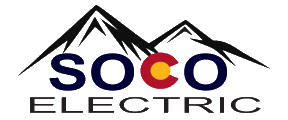What Are The Benefits Of Residential Solar Panels?
Residential Solar Panels – A Viable Option?
As the world moves towards sustainable and renewable energy sources, residential solar panels have become increasingly popular among homeowners. Installing solar panels on your home not only contributes to environmental conservation but also offers a multitude of personal benefits.
Here we explore the various advantages of residential solar panels, highlighting why they are a wise investment for the future.
Cost Savings With Residential Solar Panels
One of the most significant benefits of installing residential solar panels is the potential for substantial cost savings on your electricity bills. By generating your electricity, you can reduce your reliance on the grid and lower your monthly energy expenses. Over time, the savings can add up, offsetting the initial investment in the solar panel system.
- Reduced Electricity Bills: Solar panels produce electricity during daylight hours, which can significantly reduce or even eliminate your electricity bills, depending on the size of your system and your energy consumption.
- Net Metering: In many regions, homeowners can take advantage of net metering programs, which allow them to sell excess electricity generated by their solar panels back to the grid, earning credits that further reduce their electricity costs.
Environmental Impact Of Residential Solar Panels
Switching to solar energy is an excellent way to reduce your carbon footprint and contribute to environmental sustainability. Solar power is a clean, renewable energy source that does not produce harmful emissions or pollutants.
Reduction in Greenhouse Gas Emissions
By generating electricity from solar power instead of fossil fuels, you can significantly decrease the amount of greenhouse gases released into the atmosphere, helping to combat climate change.
Conservation of Natural Resources: Solar energy reduces the need for non-renewable energy sources such as coal, oil, and natural gas, helping to preserve these finite resources for future generations.
Energy Independence
Installing solar panels can provide a measure of energy independence, reducing your dependence on the utility grid and protecting you from rising energy costs and power outages.
- Protection Against Rising Energy Costs: Energy prices are subject to fluctuations and can rise over time. By generating your own electricity, you can insulate yourself from these increases and gain more control over your energy expenses.
- Reliable Power Supply: Solar panels can provide a reliable source of electricity, especially when combined with battery storage systems that store excess energy for use during cloudy days or at night.
Increased Home Value With Residential Solar Panels
Homes with solar panel installations often see an increase in property value. Potential buyers recognize the benefits of solar energy and are willing to pay a premium for homes equipped with solar systems.
- Attractive Selling Point: Solar panels can make your home more attractive to buyers, as they offer the promise of lower energy bills and a reduced environmental impact.
- Higher Resale Value: Studies have shown that homes with solar installations tend to sell for higher prices compared to similar homes without solar panels.
Government Incentives and Rebates
Many governments offer financial incentives to encourage the adoption of solar energy. These incentives can help offset the initial cost of installing a solar panel system.
Federal and State Tax Credits: In the United States, the federal government offers the Investment Tax Credit (ITC), which allows homeowners to deduct a significant percentage of the cost of installing a solar energy system from their federal taxes. Additionally, many states offer their own tax credits and rebates.
Local Incentives: Some municipalities and utility companies provide additional incentives, such as grants or performance-based incentives, which further reduce the cost of going solar.
Low Maintenance Costs
Solar panel systems require very little maintenance to operate efficiently. Most systems come with long-term warranties, and the panels themselves are designed to withstand various weather conditions.
- Durability and Longevity: Solar panels are built to last, with most systems having a lifespan of 25 to 30 years or more. Routine cleaning and periodic inspections are usually sufficient to keep the system in good working order.
- Minimal Ongoing Costs: Once installed, the ongoing costs associated with solar panels are relatively low, mainly consisting of occasional cleaning and minor repairs if needed.
Technological Advancements
The solar energy industry is continuously evolving, with advancements in technology leading to more efficient and affordable residential solar panels.
- Improved Efficiency: Modern solar panels are more efficient at converting sunlight into electricity, meaning you can generate more power with fewer panels.
- Innovative Solutions: Emerging technologies, such as solar shingles and bifacial panels, offer new and aesthetically pleasing options for homeowners looking to go solar.
Residential Solar Panels – Are They Right For Your Home?
Residential solar panel installations offer numerous benefits, ranging from significant cost savings and increased home value to environmental sustainability and energy independence. With the added advantage of government incentives and the continuous improvement of solar technology, there has never been a better time to invest in solar energy for your home. By making the switch to solar power, you can enjoy the immediate and long-term advantages of clean, renewable energy while contributing to a greener and more sustainable future.
NEED AN ELECTRICIAN IN COLORADO SPRINGS?
Free Consultation!

“Soco Electric exceeded my expectations. They installed an outdoor hookup for a new hot tub. Everything ended up looking very built in, with the conduit even formed nicely around small bends of our siding. The price was very reasonable, and Jonathan is knowledgeable and good at explaining the work needed.” Ted Firlit
